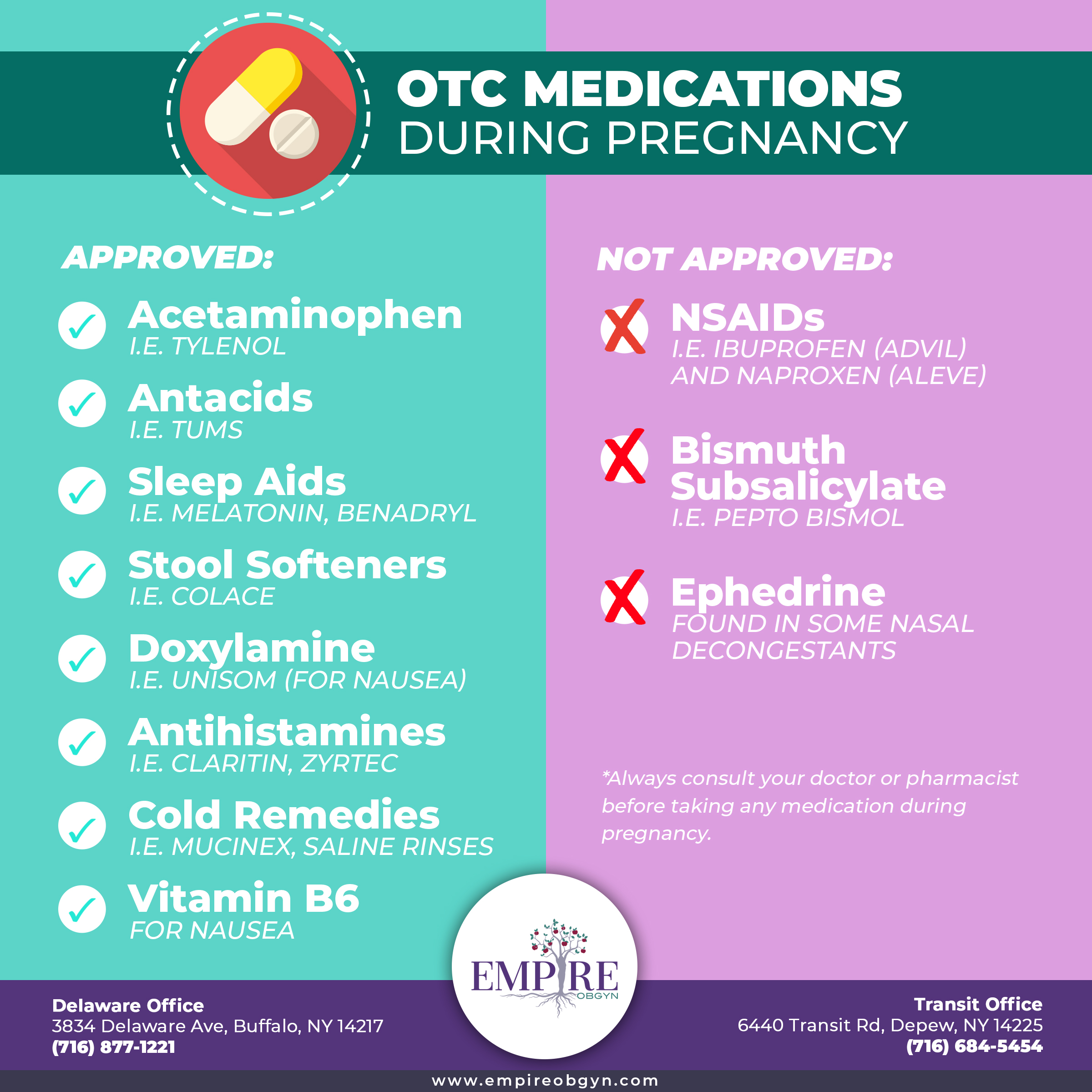
Pregnancy and Over-the-Counter Medications: A Comprehensive Guide
Pregnancy is a time of great joy and anticipation, but it also comes with a unique set of challenges and concerns. One of the most common questions that pregnant women have is about the safety of over-the-counter (OTC) medications.
OTC medications are drugs that can be purchased without a prescription. They are typically used to treat minor ailments such as headaches, colds, and allergies. While many OTC medications are safe to use during pregnancy, there are some that should be avoided.
Safe OTC Medications During Pregnancy
The following OTC medications are generally considered safe to use during pregnancy:
- Acetaminophen (Tylenol): This is a pain reliever and fever reducer that is safe to use in all stages of pregnancy.
- Ibuprofen (Advil, Motrin): This is a nonsteroidal anti-inflammatory drug (NSAID) that is safe to use in the first and second trimesters of pregnancy. However, it should be avoided in the third trimester because it can cause premature closure of the ductus arteriosus, a blood vessel that connects the heart to the lungs.
- Diphenhydramine (Benadryl): This is an antihistamine that is safe to use during pregnancy. It can be used to relieve symptoms of allergies, such as sneezing, runny nose, and itchy eyes.
- Pseudoephedrine (Sudafed): This is a decongestant that is safe to use during pregnancy. It can be used to relieve symptoms of colds and allergies, such as nasal congestion and sinus pressure.
- Loratadine (Claritin): This is a non-sedating antihistamine that is safe to use during pregnancy. It can be used to relieve symptoms of allergies, such as sneezing, runny nose, and itchy eyes.
OTC Medications to Avoid During Pregnancy
The following OTC medications should be avoided during pregnancy:
- Aspirin: This is a pain reliever and fever reducer that should be avoided during pregnancy. It can increase the risk of bleeding and other complications.
- Naproxen (Aleve): This is an NSAID that should be avoided during pregnancy. It can increase the risk of miscarriage, birth defects, and other complications.
- Codeine: This is a narcotic pain reliever that should be avoided during pregnancy. It can cause respiratory problems in newborns.
- Oxycodone (Percocet): This is a narcotic pain reliever that should be avoided during pregnancy. It can cause respiratory problems in newborns.
- Hydrocodone (Vicodin): This is a narcotic pain reliever that should be avoided during pregnancy. It can cause respiratory problems in newborns.
Other Considerations
In addition to the specific medications listed above, there are a few other things to keep in mind when taking OTC medications during pregnancy:
- Always read the label carefully. This will tell you if the medication is safe to use during pregnancy.
- Talk to your doctor before taking any OTC medications. This is especially important if you have any underlying health conditions or are taking any other medications.
- Do not take more than the recommended dose. Taking too much of an OTC medication can be harmful to you and your baby.
- If you have any questions or concerns, talk to your doctor. They can help you determine which OTC medications are safe for you to use during pregnancy.
Conclusion
Pregnancy is a time of change and adjustment. It is important to be aware of the potential risks and benefits of OTC medications so that you can make informed decisions about your health and the health of your baby. By following the guidelines above, you can help ensure a safe and healthy pregnancy.